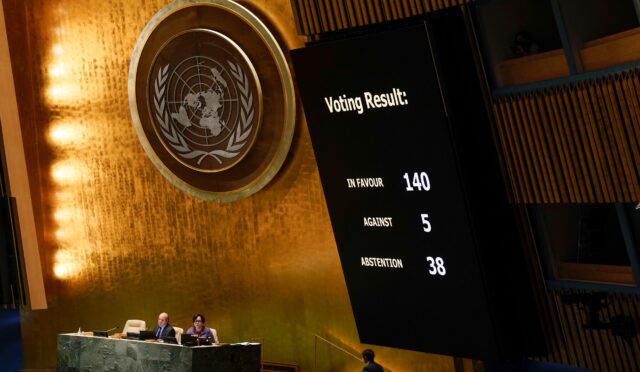Israel Initiates Ceasefire Negotiations with Hamas
In a significant statement on Thursday, Israeli Prime Minister Benjamin Netanyahu announced that his government is prepared to negotiate a durable agreement with Hamas aimed at ending the ongoing Gaza conflict. However, he stipulated that before any such dialogue could begin, Hamas must first disarm and relinquish its control over Palestinian territories. Netanyahu warned that if the terms set by Israel are not met, the situation could escalate into further violence.
Netanyahu’s comments come in the wake of a tragic incident reported by Gaza’s civil defense agency, revealing that among the 66 fatalities from Israeli airstrikes, eight were children. Among the deceased was a one-year-old boy who had just spoken his first words hours before the attack, highlighting the grave impact of the conflict on innocent lives.
Progress and Challenges in Negotiations
Amid ongoing efforts to broker a 60-day ceasefire, Netanyahu’s talks with U.S. President Donald Trump have focused on establishing a halt to hostilities that have persisted for 21 months. Indirect negotiations are also taking place in Qatar, where Hamas has agreed to release half of the hostages they hold from the catastrophic events of October 7, 2023, which sparked the current war. However, key issues remain unresolved, including Hamas’s demand for unrestricted aid flow into Gaza and Israel’s military withdrawal.
Israeli Foreign Minister Gideon Saar remarked on the progress made during negotiations, yet he acknowledged that some complexities would take additional time to iron out. Saar revealed that an agreement would initially see the release of eight hostages, with more expected to follow, while discussions about the total number of Palestinian prisoners to be released remains contentious.
Potential Terms of a Lasting Ceasefire
The discourse surrounding a lasting ceasefire presents significant hurdles, specifically in terms of preventing Hamas from maintaining its grip on Gaza post-conflict. Saar has conveyed Israel’s readiness to allow Hamas leaders a pathway to exile, yet concerns about future control of the territory remain.
Faced with rising domestic pressures for a resolution to the conflict, Netanyahu has reiterated the necessity of disarming Hamas as a fundamental condition in any agreement. He expressed willingness to reach a peaceful solution through negotiations but made it clear that if this is unattainable within the proposed timeframe, Israel would resort to military action.
Hamas’ Firm Stance on Occupation
In response to these negotiations, senior Hamas official Bassem Naim articulated the group’s refusal to accept any form of continued occupation of Palestinian land. Naim condemned Israeli control over key regions such as Rafah and the Morag Corridor, insisting that such occupations would not be tolerated by the Palestinian populace.
Naim also highlighted the need for reform regarding how aid is distributed, criticizing the current system linked to U.S. and Israeli authorities that has led to numerous casualties among those seeking food and medical assistance.
Impact of Recent Strikes on Civilian Population
The toll of violence has been acutely felt among civilians, as underscored by the tragic fatalities reported from an Israeli strike near a medical facility in Deir el-Balah. Witness accounts describe horrifying scenes of chaos, with individuals expressing their devastation at the loss and injury of fellow civilians while waiting for essential goods.
The Israeli military has defended its actions, asserting that the strike targeted a specific Hamas operative linked to earlier attacks. They profess regret over unintended consequences for innocent lives, yet the data from health authorities in Gaza paints a stark picture, with casualties massively stacked against the civilian population since conflict escalated.
Casualty Statistics Highlight Severity of Conflict
The ongoing conflict has resulted in a staggering number of casualties, with Gaza’s health ministry reporting at least 57,762 Palestinians dead, predominantly civilians, since the fighting began. This extensive loss of life contrasts painfully with the 1,219 fatalities in Israel, primarily resulting from the initial October assault by Hamas, indicating a severe humanitarian crisis.
While the hostage situation adds another layer of complexity, with 251 individuals taken during the Hamas attack and 49 still unaccounted for, the impact of these dynamics on civilian safety and geopolitics in the region cannot be understated. As negotiations continue, the toll of the conflict remains a poignant reminder of the humanitarian challenges on the ground.







